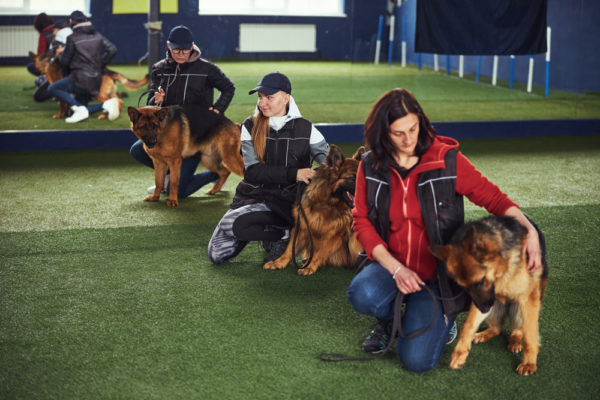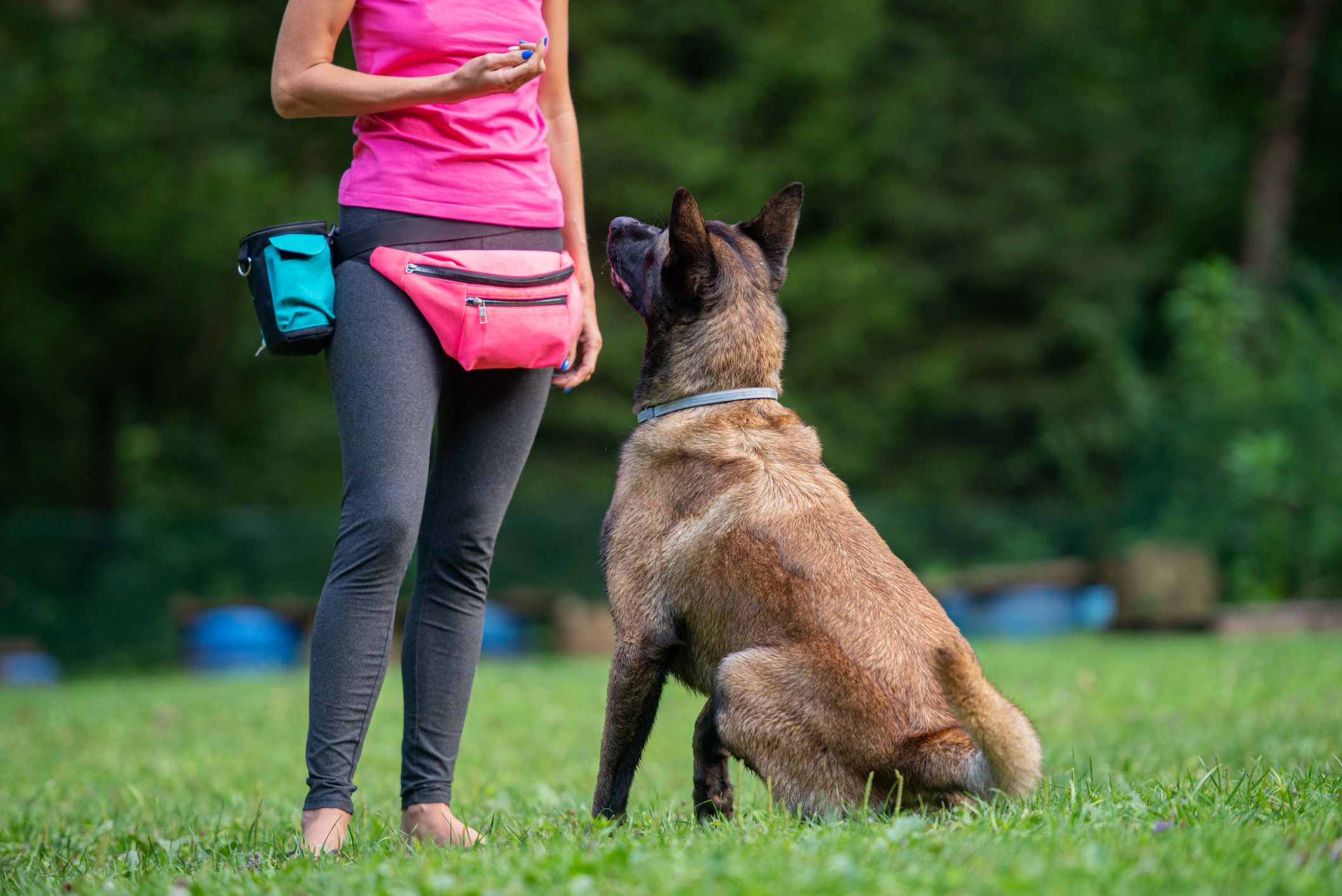The Ultimate Overview to Pet Training: Change Your Family pet's Habits
Reliable dog training is vital for fostering a harmonious connection between animals and their owners. The details of canine habits and the execution of structured training methods play an important duty in this process. By recognizing the principles of favorable support, consistency, and socialization, family pet proprietors can navigate common obstacles that arise during training. This guide not only intends to outfit you with the required devices to change your canine's actions but also invites you to explore just how these fundamental concepts can result in a deeper connection with your animal. What might be the very first step in this transformative journey?
Comprehending Pet Dog Actions
Recognizing canine behavior is vital for efficient training and an unified partnership between pet dogs and their owners. A dog's actions is affected by a mix of genetics, environment, and experiences. Dog training. Acknowledging these variables permits owners to tailor their training approaches to fulfill the specific needs of their family pets
Pets communicate mostly with body movement, vocalizations, and face expressions. As an example, a wagging tail can indicate excitement or happiness, while a put tail may signify concern or entry. Observing these signs makes it possible for proprietors to react suitably, enhancing favorable habits and addressing negative ones properly.
Furthermore, understanding the social framework of canines can offer understandings right into their behavior. Pet dogs are pack pets, and they flourish in an organized atmosphere. Developing consistent policies and clear limits can stop confusion and advertise a complacency.
Additionally, acknowledging the natural instincts of pet dogs, such as the urge to dig or chase after, is crucial. These impulses can be redirected through ideal electrical outlets, such as play or workout. By adequately understanding these behavior aspects, proprietors can cultivate a positive training experience, inevitably bring about a well-adjusted and obedient canine buddy.
Essential Educating Strategies
Efficient pet training counts on a variety of crucial methods that can dramatically improve the understanding procedure for both the canine and the owner. One essential method is positive support, which involves satisfying desirable behaviors with deals with, praise, or play. This technique motivates pets to duplicate the behaviors that cause positive results, fostering a trusting relationship in between the animal and owner.
An additional trick strategy is consistency in assumptions and commands. Making use of the very same verbal signs and hand signals assists the pet dog understand what is called for, minimizing confusion and promoting quicker learning. In addition, developing clear boundaries and guidelines is vital for reliable communication.
Socialization is also an essential component of training. Revealing pet dogs to different atmospheres, people, and various other pets aids them establish suitable social skills and minimizes anxiety in unfamiliar circumstances.
Last but not least, perseverance and timing are crucial. Educating sessions must be quick however constant, making sure that the canine remains engaged and responsive. By utilizing these crucial techniques, proprietors can create a structured and favorable training experience that advertises excellent actions and enhances the bond with their canine companions.
Developing a Training Set Up
Exactly how best site can a well-structured training schedule improve a pet dog's learning experience? A training schedule supplies consistency, making sure that pets obtain regular, focused instruction. This predictability aids dogs recognize what is anticipated of them, enhancing their understanding and permitting far better retention of commands and behaviors.
When developing a training timetable, it is important to think about the canine's age, breed, and private personality. Youthful pups might benefit from much shorter, more frequent sessions, while grown-up canines might love longer, much less frequent training periods. Integrating a range of activities can also keep the sessions involving, preventing monotony and advertising enthusiasm for knowing.
Additionally, organizing training sessions at particular times of the day can help strengthen a routine. As an example, pairing training with day-to-day strolls or play can develop a positive association with knowing. It is also important to include time for support, such as treats or praise, to reward wanted habits quickly.
Finally, flexibility is crucial. While uniformity is important, being adaptable to the pet's state of mind or power degree can boost their knowing experience. A well-crafted training schedule eventually lays the structure for effective interaction and a stronger bond between the canine and proprietor.
Typical Training Difficulties
Despite having a well-structured training timetable, pet proprietors commonly come across numerous difficulties throughout the training procedure. One common problem is variance in commands and cues. When several family members use different terms or tones, a canine may become baffled, preventing its capacity to find out properly.
One more constant obstacle is disturbance. Dog training. Dogs are Learn More Here normally curious creatures, and external stimuli such as various other pets, sounds, or people can divert their interest during training sessions. This calls for proprietors to develop a regulated environment or slowly present disturbances to enhance focus
Additionally, varying energy degrees can impact training end results. High-energy canines may struggle to settle down and concentrate, while much more easygoing types could need additional inspiration to involve. Tailoring the training technique to fit the private pet's personality is important for success.

Building a Solid Bond
A strong bond between a pet dog and its proprietor is crucial for successful training and total wellness. Dog training. This connection promotes trust fund, which is vital for effective interaction throughout the training procedure. When a pet feels safe and secure and linked to its proprietor, it is more probable to respond positively to cues and commands
To construct this bond, consistency is crucial. Establishing a routine that includes normal feeding, workout, and training sessions helps develop a sense of security. In addition, positive reinforcement strategies, such as deals with, appreciation, and play, strengthen wanted actions while strengthening the psychological connection.
Socializing is an additional essential aspect of bond-building. Revealing your canine to various atmospheres, individuals, and other animals helps them really feel extra comfortable and positive, boosting the bond with their proprietor. Engaging in activities with each other, such as strolling, playing fetch, or joining obedience training, promotes synergy and common satisfaction.
Conclusion

Recognizing pet dog actions is vital for reliable training and a harmonious partnership between pets and their owners.Efficient pet training relies on a range of crucial methods that can dramatically enhance the discovering procedure for both the owner and the pet.Despite having a well-structured training routine, pet dog proprietors often come across different challenges during the training procedure.In conclusion, efficient pet training relies on a thorough understanding of canine actions, the application of important methods, and the facility of a structured training timetable. By stressing favorable reinforcement and uniformity, dog proprietors can dramatically boost their family pets' actions, ultimately guaranteeing a harmonious connection and promoting the wellness of both the dog and its atmosphere.